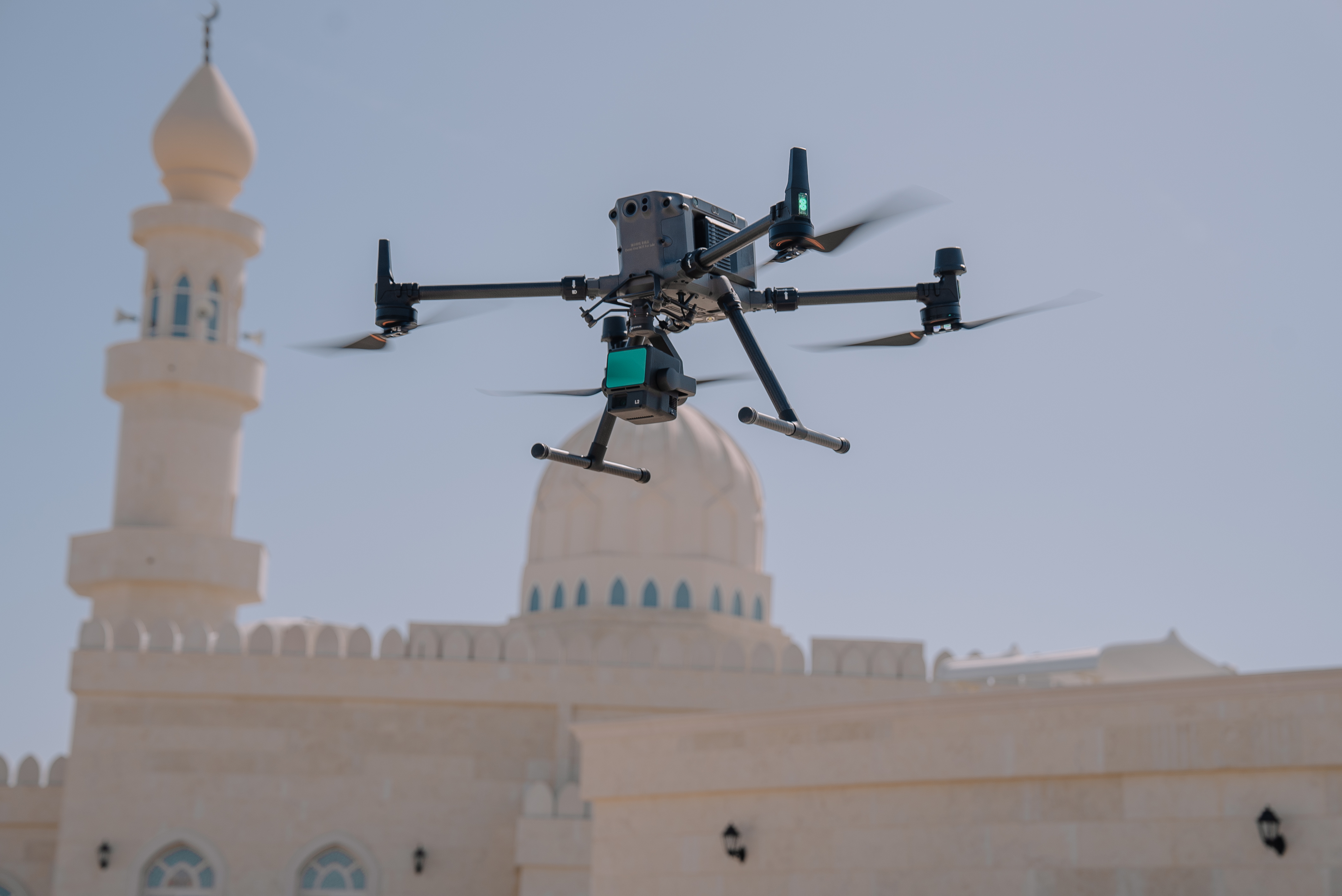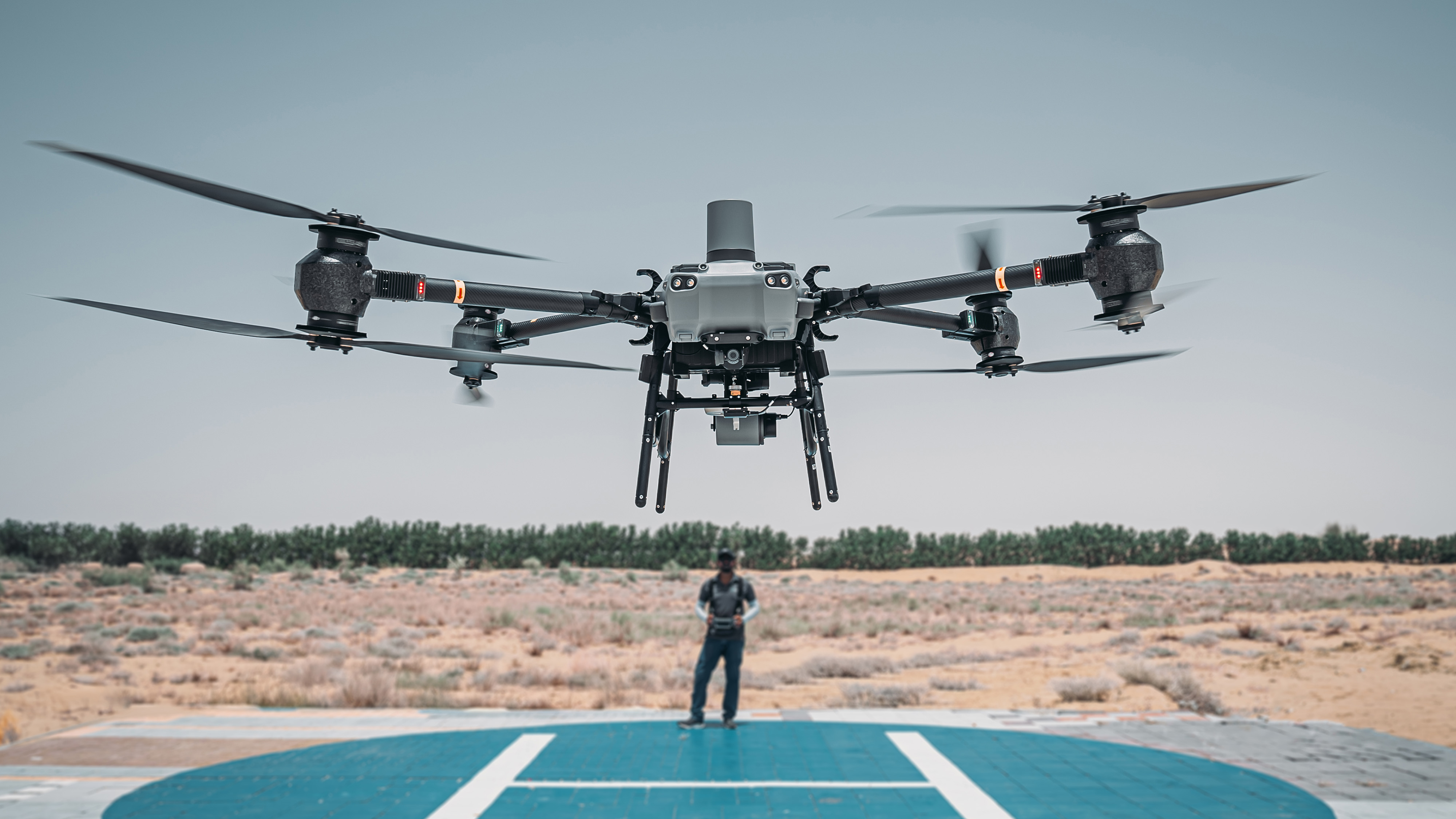
Guide to Commercial Drone Flight Operation in the UAE
The United Arab Emirates (UAE) has implemented a thorough regulatory framework for the commercial use of Unmanned Aerial Systems (UAS), or drones, overseen by the General Civil Aviation Authority (GCAA) and the Dubai Civil Aviation Authority (DCAA). These regulations, detailed in the GCAA’s CAR-UAC and the DCAA’s CAR-UAS (specific to Dubai), ensure that drone operations are conducted safely and in accordance with national standards. This guide outlines the key roles, registration processes, flight permit procedures, and operational guidelines for commercial drone activities in the UAE.
Drone Operator vs. Drone Pilot
The UAE distinguishes between two critical roles in drone operations: the Drone Operator and the Drone Pilot, each with specific duties under the regulatory framework.
Drone Operator
The Drone Operator is the legal entity—such as a company or government organisation—responsible for managing drone operations. This includes ownership, mission planning, and regulatory compliance. Operators must secure a DCAA UAS Operator Permit, Security Clearance, and Unmanned Aircraft Operator Authorisation (UOA) from the GCAA.
Their responsibilities include:
- Registering all drones under the entity’s name.
- Ensuring pilots are adequately trained and certified.
- Maintaining safety procedures and comprehensive documentation.
- Securing flight permissions for each operation.
- Arranging insurance and necessary clearances.
Drone Pilot
The Drone Pilot is the individual who physically operates the drone. For commercial operations, pilots must possess a Commercial UAS Pilot Certificate issued by a DCAA-approved training provider, such as FEDS Drone Academy, recognised by the GCAA. Applicants must be at least 18 years old, UAE residents, and complete the required training.
Their duties encompass:
- Operating the drone in accordance with GCAA and DCAA regulations.
- Performing pre-flight checks and risk assessments.
- Maintaining visual line-of-sight and adhering to airspace restrictions.
- Presenting certification and identification upon request during operations.
A strict requirement stipulates that no individual may operate a drone in Dubai airspace without a valid DCAA-issued pilot license.
Registration Procedures
Commercial drone operations in the UAE require registration with both the DCAA and GCAA, each with distinct processes.
DCAA Registration
Applications are submitted via the official portal at www.dcaa.gov.ae. Eligibility requires UAE citizenship or residency, along with a valid Emirates ID. Operators must provide detailed drone information, including:
- Type and manufacturer
- Weight and color
- Dimensions
- Camera specifications (if applicable).
GCAA Registration
For commercial or specialized operations—such as aerial photography, surveys, or firefighting—registration is managed through the GCAA portal at drones.gov.ae. The process involves:
- Registering the company on the GCAA Portal.
- Obtaining Security Clearance.
- Registering all drones.
- Securing a flight permit for each operation.
The GCAA authorizes activities such as aerial work, agriculture, inspections, media production, petroleum operations, surveillance, and weather forecasting.
GCAA My Drone Hub
The drones.gov.ae platform, administered by the GCAA, serves as the central resource for drone operations in the UAE. It provides real-time airspace data, mission planning tools, and expedited flight approvals. Operators access the system using UAE PASS, while administrators utilize the Unmanned Traffic Management (UTM) Web Portal. For assistance, contact the GCAA Aircraft Registry Unit at drones@gcaa.gov.ae or 8004466 (Sunday to Thursday, 7:30 AM to 3:30 PM; Friday, 7:30 AM to 12:00 PM).

Operational Guidelines
The UAE enforces rigorous rules to maintain safety and order in its airspace.
Obligations of the Drone Operator
Operators are responsible for:
- Ensuring all flights comply with CAR-UA regulations.
- Installing the DCAA SkyCommander tracking system for operations in Dubai.
- Maintaining insurance coverage for all drones.
- Notifying the DCAA of changes to operator details, fleet composition, or operational scope.
- Ensuring equipment is maintained and operational per manufacturer standards.
- Securing drones and documenting their use.
- Retaining operational records for a minimum of 24 months, protected from loss or tampering.
Safe Operation Protocols
Operators must establish procedures to ensure:
- Priority is given to manned aircraft, with drones landing if necessary.
- Privacy is respected, and no harm comes to individuals or property.
- A safe distance is maintained from people, objects, and crowds.
- Contingency plans are in place for emergencies or unusual circumstances.
- Operations avoid restricted military or environmentally sensitive zones unless authorized.
Standard Operational Limits
Unless specific approval is granted by the DCAA, operations are subject to:
- Flights permitted only during daylight hours.
- Drones must remain within visual line-of-sight.
- Maximum altitude is limited to 400 feet above ground level.
- Drones must not exceed a take-off mass of 25 kilograms.
Transportation of dangerous goods is prohibited.
Obtaining a Flight Permit
Once the Drone Operator and Drone Pilot have fulfilled all regulatory requirements—such as securing the GCAA UOA, Security Clearance, and Pilot Certification—they must apply for a Flight Permit for each intended drone operation. This multi-step process ensures compliance with safety, security, and local regulations.
Step-by-Step Process to Obtain a Flight Permit
- Secure GCAA Approval
Submit your flight mission request through the GCAA's designated portal. This initial approval assesses the operation for national aviation safety and compliance.
- Obtain Ministry of Defence (MOD) Approval
The MOD evaluates the request from a national security perspective. This clearance is mandatory for all drone operations across the UAE, regardless of location or purpose.
- Coordinate with Local Civil Aviation Authority
Depending on the operation's location, clearance from the relevant local aviation authority is required:
- In Dubai, apply through the DCAA.
- In other Emirates, coordination is typically managed directly by the GCAA.
- Media Permit (If Applicable)
For operations involving filming or photography, additional permits are required from media authorities:
- In Dubai, obtain approval from the Dubai Film and TV Commission (DFTC).
- In other Emirates, seek clearance from the National Media Council (NMC) or the respective local media office.
- Obtain Additional NOCs (If Required)
Certain locations may necessitate No Objection Certificates (NOCs):
- Dubai Municipality NOC: Required for flights over public parks, government facilities, or protected areas.
- Other authorities: Special jurisdictions, such as Free Zones, military zones, or coastal areas, may require separate approvals.
Final Checklist Before Flight
Prior to each mission, confirm the following are in place:
- GCAA Flight Mission Approval
- MOD Security Clearance
- Local CAA Airspace Approval (e.g., DCAA for Dubai)
- Media Permit (if capturing photos or video)
- Additional NOCs (for restricted or sensitive areas)
- Active SpotMe Drone Tracker (mandatory in Dubai)
Processing Tip
Approval timelines vary based on the operation’s complexity and the number of agencies involved. Plan ahead, particularly for intricate missions or high-profile filming projects, to ensure timely clearances.

Conclusion
The UAE’s drone regulations, administered by the GCAA and DCAA, provide a structured framework that balances innovation with safety and security. By clearly defining the roles of operators and pilots, facilitating registration and flight approvals through platforms like drones.gov.ae, and enforcing operational standards, the UAE supports a wide range of commercial drone applications. Compliance with these requirements—including the detailed flight permit process—is essential for lawful and successful operations.